Calling Time on Sexual Misconduct: best-practice prevention in higher education • 17-18th June, 2020
Fiona Marshall (she/her/hers)

University/Organisation: Monash University
Role: Manager, Respectful Communities
Presentation title: A journey to primary prevention: establishing effective response to allow for effective primary prevention on-campus (50 minutes)
Theme related to the conference: Moving beyond policies: examining primary prevention interventions and learnings and building a culture of belief
Fiona is the Manager, Respectful Communities at Monash University. Fiona commenced working within the University’s Campus Community Division in March 2017, after seven years spent in other Divisions, driving prevention and awareness raising efforts under the Respect.Now.Always. Campaign. Fiona went on to oversee the development of the first dedicated gender-based violence prevention team - Respectful Communities – established in early 2018.
With extensive experience working in higher education, Fiona is an experienced policy professional with specific expertise in gender equality and the prevention of gender-based violence. Fiona also has a Bachelor of Laws/Bachelor of Arts from Monash University.
Three things to get out of the conference:
Hear about latest research and best practice prevention in Universities
Collaborative working relationships with international counterparts
Ideas for new innovative primary prevention practice.
Ami Gell (she/her/hers)

University/Organisation: Nottingham Trent Students’ Union
Role: Student Voice Manager
Presentation title and time: Consent really is everything! Thursday 18th June 2020, 1.40pm-3.10pm
Theme related to the conference: This session supports the theme: Moving beyond policies: examining primary prevention interventions and learnings and building a culture of belief.
Ami works as Student Voice Manager at Nottingham Trent Students’ Union. She leads a team which broadly covers Representation, Democracy, and Equality & Diversity. Ami works on a collaborative project with Nottingham Trent University, developing and delivering consent training to students. Prior to NTSU, Ami has worked at Oxford SU and Sheffield Students’ Union.
Three things to get out of the conference:
Create a network of staff who can share knowledge. Share best practice on workshops, specifically on how to improve buy-in/turnout from students. Learn about the work of other organisations and the preventative measures which they are taking.
Avery Delany (Avery Delany/They/Them)

University/Organisation: Goldsmiths Students’ Union / Goldsmiths University
Role: Peer Facilitator on the Against Sexual Violence Campaign
Presentation title and time: Students not institutions - Reflections from Goldsmiths students on delivering anti-sexual violence training. 15 minutes.
Theme related to the conference: Best practice in training
Avery Delany is a PhD candidate in the Department of Anthropology at Goldsmiths University and works as a peer facilitator delivering the Active Bystander training as part of the Against Sexual Violence Campaign at Goldsmiths Students’ Union.
Three things to get out of the conference: Learning from and networking with other student, staff and activists based at other HE institutions, deepening my knowledge of sexual misconduct and violence especially as it pertains to HE environments, co-delivering a paper and discussing best practice with others.
Cade Anderson-Smith (He/Him)
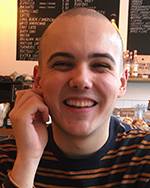
University/Organisation: Goldsmith Student Union / Goldsmith University
Role: Peer Facilitator on the Against Sexual Violence Campaign
Presentation title and time: Students not institutions - Reflections from Goldsmiths students on delivering anti-sexual violence training.
Theme related to the conference: Best practice in training.
Cade is a prospective Psychology graduate at Goldsmith University. For the last two years he has been facilitating the Active Bystander training with students and staff as a part of Goldsmiths Students’ Union Against Sexual Violence Campaign.
Three things to get out of the conference:
Practical insights and tips on best practice on facilitating training
A deeper understanding of Sexual violence and Harassment in HE from those on the ‘front-line’
Network and community building with other facilitators/trainers to support each other across institutions and contexts.
Clarissa Humphreys (She/Her)

University/Organisation: Durham University
Role: Sexual Misconduct Prevention and Response Manager, Author
Presentation title and time: Addressing Student Sexual Violence in Higher Education: A Good Practice Guide, Tuesday 16th June 2020, 12.30pm-1.30pm.
Theme related to the conference: Moving beyond policies: examining primary prevention interventions and learnings and building a culture of belief
Clarissa Humphreys is the co-author of Addressing Student Sexual Violence in Higher Education: A Good Practice Guide. She is a practitioner and leading authority on addressing gender-based violence in Higher Education and was the first person to hold a dedicated role in this area in the United Kingdom. She is an experienced trainer and has developed and delivered courses covering topics such as understanding sexual violence in Higher Education, responding to disclosures, and conducting trauma-informed investigations, adjudication and disciplinary processes. She currently works as the Sexual Misconduct Prevention and Response Manager at Durham University and is responsible for policy development, case management, student support and prevention and training.
Three things to get out of the conference:
Learn from other practitioners See examples of best practice from other countries Build a network of practitioners who can continue to share ideas and encourage each other.
Jane Meyrick (She)

University/Organisation: University of the West of England
Role: Senior Lecturer in Health Psychology
Presentation title and time: Understanding sexual violence at University: an evidence based response.
Jane is dual qualified as a Chartered Health Psychologist and Public Health Specialist. She leads on sexual health, sexual + reproductive rights/violence and has worked at policy and service levels within sexual health for 20 years. She co-leads the research around sexual violence/abuse at UWE as well as UWE’s contribution to local sexual health services and City Council responses. This work has contributed to key national policy documents and Select Committee Inquiries.
Three things to get out of the conference:
Common performance criteria
Pressure for OFS to set out consequences of not meeting performance criteria
Networking with others working in this field.
Jo Hatton (she/her/hers)

University/Organisation: Macquarie University
Role: Manager Workplace Diversity and Inclusion
Presentation title and time: “Welcome to the ‘murky middle ground’: a new approach to engaging with staff about workplace norms and sexual misconduct.”
Wednesday 17 June 10.30am - 11.30am
Theme related to the conference: Moving beyond policies: examining primary prevention interventions and learnings and building a culture of belief
Jo’s innovative, evidence-based change management approach to D&I has made inroads towards real and sustainable change for equality at Macquarie. She leads whole-of-university workplace D&I strategy that is designed to ‘fix the system’ by:
- identifying and understanding the systemic and cultural factors driving workplace inequality;
- drawing on research evidence to design interventions that work;
- equipping leaders, managers and key staff to be effective change-agents; and
- embedding D&I changes across organisational policies, processes and systems.
Jo is recognised for her engaging leadership style, strategic approach, ability to build strong partnerships and her passion for evolving truly inclusive workplace cultures.
Megan Reynolds (she/her)

University/Organisation: Queen’s University Belfast
Role: PhD Researcher
Presentation title: Prevalence Rates of Unwanted Sexual Experiences of Higher Education Students: A Systematic Review (15 mins)
Theme related to the conference: Not a moment, it’s a movement: Creating sustainable change and building networks of allies and bystanders.
Megan Reynolds is a PhD Researcher at STARC Research Lab in the School of Psychology, Queen’s University Belfast. Her research focuses on investigating unwanted sexual experiences (USE’s) and the impact of this on the psychological well-being of university students in Northern Ireland. Further, her research explores the role of alcohol consumption related to understanding sexual consent.
Three things to get out of the conference:
Connect with fellow researchers within this area Learn about current research being conducted on university sexual misconduct Learn how to present at a conference.
Bill Flack (He/Him/His)

University/Organisation: Bucknell University
Role: Professor
Presentation title and time: The ARC3 Surveys for Assessing Sexual Misconduct Among University Students and Staff Thursday 18th June 2020, 3.10pm-4.10pm via Zoom
Theme related to the conference: Sexual Misconduct and Climate Surveys
Dr. Bill Flack is a Professor of Psychology and Senior Fellow in the Social Justice Residential College at Bucknell University.
Three things to get out of the conference: promising prevention practices; understanding experiences and needs of faculty/staff; climate assessment
Rachael Brady (She/Her/Hers)
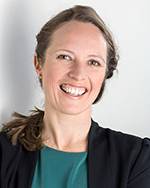
University/Organisation: Workplace Coach and Consultant, partnering with Macquarie University
Role: Workplace Coach and Consultant
Presentation title and time: “Welcome to the ‘murky middle ground’: a new approach to engaging with staff about workplace norms and sexual misconduct.”
Wednesday 17 June 10.30am - 11.30am
Theme related to the conference: Moving beyond policies: examining primary prevention interventions and learnings and building a culture of belief
Rachael’s work prioritises human connection, even when it’s really hard. With a background in workplace law, industrial relations and employee relations, Rachael understands the limitations of the law and our existing frameworks in dealing with complex people issues like sexual harassment, bullying and workplace conflict. Rachael now works with leaders, managers, teams and HR & Diversity and Inclusion professionals, to shift the focus from compliance to building positive and respectful workplace relationships and cultures. Rachael is valued by her clients as a versatile workplace coach, facilitator, trainer and thought-partner, working across areas of leadership, culture, building manager confidence and capability and conflict management. If you are interested in learning more about Rachael, please visit www.rachaelbrady.com.au
Martha Schlee-Bamford (She/Her)

University/Organisation: The University of Sussex and the Good Lad Initiative
Role: Researcher
Presentation title and time: Moving beyond policies: examining primary sexual-violence prevention interventions at UK universities
Thursday 18th June 2020, 11.30am-12.30pm
Theme related to the conference: This conference analyses current applications of preventative programmes for university campus-based sexual violence in the UK and their focus on the performative masculinities of lad culture. It suggests that the focus on lad culture risks such programmes overlooking more hidden forms of violence, such as intimate partner violence (IPV). It will also identify that by exclusively focussing on displays of lad culture, such programmes reduce the intake of participants who do not display ‘laddish’ forms of masculinity, thus losing a vital chance to change the social norms of other prominent student demographics.
Martha recently received a distinction in her MA in Gender, Violence and Conflict at the University of Sussex, in which her primary focus was the prevention of sexual violence at UK university campuses and how they’re currently being implemented. She is now working as a clerk at the Brighton County Court, mostly working on domestic violence and child care during the COVID-19 pandemic.
Three things to get out of the conference: An understanding of the current implementations of sexual violence prevention in UK universities; theories around university lad culture and intimate partner violence; the need for a more intersectional approach to understanding university based sexual-violence.
Lisa Hallgarten (She/Her)
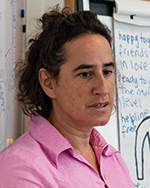
University/Organisation: Brook: young peoples sexual health charity
Role: Brook, Head of Policy and Public Affairs; but presenting in a personal capacity as a freelance consultant in reproductive health advocacy and education
Presentation title and time: Too little, too late, too legal: what can we do earlier to embed a culture of consent?
Theme related to the conference:
Lisa is Head of Policy and Public Affairs at Brook the young people’s sexual health charity. She has worked with young people and professionals for 20 years as a sex educator, trainer, and advocate for young people’s right to evidence-based sex education, and accessible reproductive health services. She has published extensively on young people’s sexual health and abortion issues.
Three things to get out of the conference: A better understanding of what is happening in universities, an opportunity to think about what needs to happen earlier for children and young people, an opportunity to think about the role of universities/academics in supporting earlier intervention.
Sue Webeck
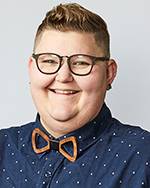
University/Organisation: Australian National University
Role: Senior Manager, Respectful Relationships Unit
Presentation title and time:
Theme related to the conference:
Sue is the Senior Manager of the Respectful Relationships Unit at the Australian National University working to make the ANU a safer place to live, learn, work and play.
Sue has over 15 years’ experience in the Not for Profit and Community Sector. Her previous appointments include executive and non-executive positions across the violence prevention and response sector and the LGBTIQA+ sector. Sue has particular skills and experience in development and delivery of violence prevention education and responding to incidents of violence.
Sue is currently a member of the ACT LGBTIQ+ Ministerial Advisory Council and a Domestic Violence Crisis Service Champion. Sue is a proud member of the LGBTIQA+ community, happily visible and raising her 9 year old twins with her wife in the Nation’s Capital.
Three things to get out of the conference:
A global perspective on institutional primary prevention A connectedness with colleagues and ideas from across the world Reflective opportunity on our own work
Kim Copeland (She/Her/Hers)
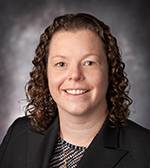
University/Organisation: Charles Sturt University
Role: Director, Office for Student Safety and Wellbeing
Presentation title and time:
Theme related to the conference:
Kim is a social worker with over 20 years’ experience throughout Australia and the UK in government and non-government organisations. Kim spent 11 years at the Department of Defence prior to joining the higher education sector, providing and managing a range of support services and critical incident responses. In recent years Kim led clinical teams and large scale cultural change initiatives as Director Response, Support and Research in the Department of Defence Sexual Misconduct Prevention and Response Office.
In 2018 Kim undertook an independent review into factors which contribute to student sexual assault and sexual harassment at Charles Sturt University. Kim joined Charles Sturt in January 2019 as Director of the newly established Office for Student Safety and Wellbeing. Her appointment focuses on implementing the review recommendations and leading Student Conduct, Disability and Access, Counselling and Safer Communities, Finance and Welfare Support, Student Equity, Health Promotion and Student Training and Initiatives.
Three things to get out of the conference: Strategic and organisational approaches to prevention initiatives. Mapping and evaluating prevention initiatives. Ideas and inspiration.
Kathryn Holland (She/Her/Hers)
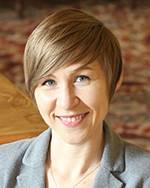
University/Organisation: University of Nebraska
Role: Assistant Professor
Mini bio: Dr. Kathryn Holland is an Assistant Professor in Psychology and Women’s & Gender Studies at the University of Nebraska Lincoln.
Kevin Swartout (he/him/his)
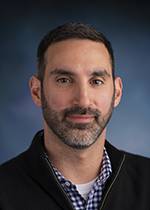
University/Organisation: Georgia State University
Role: Associate Professor
Mini bio: Dr. Kevin Swartout is an Associate Professor of Psychology and Public Health at Georgia State University.
Jaci Rogash (she/her/ hers)

University/Organisation: Monash University
Role: Investigation & Risk Assessment Officer
Presentation title: A journey to primary prevention: establishing effective response to allow for effective primary prevention on-campus (50 minutes)
Theme related to the conference: Moving beyond policies: examining primary prevention interventions and learnings and building a culture of belief
Jaci is an Investigation and Risk Assessment Officer with Monash University, where she has worked for two years. Prior to joining Monash University, Jaci worked with Victoria Police for 6.5 years, where she worked in a range of roles varying from general duties to specialist detective units.
Jaci has extensive experience in risk management, behavioural threat assessment and working with victims of sexual misconduct. Her holistic, victim centric approach, creates a safe environment for victims to disclose sexual misconduct, have a deep understanding of their reporting and support options and feel empowered to make a decision that is right for them.
Jaci has a Diploma in Policing, is a Certified Life Coach, qualified in Investigative Interviewing Techniques and trained in Stalker Risk Profiling. These qualifications and skills add an additional layer of support and knowledge she is able to provide to victims and respondents, ensuring natural justice and an unbiased approach when investigating sexual misconduct.
Three things to get out of the conference:
An understanding of how other Universities are managing sexual misconduct Preventative measures Universities have implemented Discussion on best practice
Dr Sandra A Fernandez (she/her)
University/Organisation: Centre for Minorities Research, University of St Andrews
Role: Honorary Research Fellow
Presentation title: What We Can Learn from Egyptian Social Movements: Applying Grassroots Intervention to University Contexts
Date: Thursday 18th June 2020, 10:30 – 11:30am
Theme related to the conference: There is an overlap with all three themes, but research is grounded in the ethos behind ‘Not a Moment, It’s a Movement’.
Sandra Fernandez received her PhD from the University of St Andrews. Her research areas have included the exploration of issues surrounding gendered violence, masculinities, fieldwork methods, social movements and NGO’s and plural/mixed/hybrid identities.
Three things to get out of the conference:
To learn about ways sexual violence is dealt with in various parts of the world
To come away with proactive ways of dealing with race based sexual violence and sexual violence against men
To come away with at least a few points that can be universally agreed upon as to how to either halt or penalise sexual violence.
Katrina Daoud (she/her/hers)

University/Organisation: Nottingham Trent University
Role: Sexual Violence Project Officer
Presentation title: Consent really is everything!
Date: Thursday 18th June 2020, 1.40pm-3.10pm
Theme related to the conference: Moving beyond policies: examining primary prevention interventions and learnings and building a culture of belief.
Katrina works as a Sexual Violence Project Officer at Nottingham Trent University. She is responsible for leading a training platform for staff on how to respond to sexual violence disclosures. Additionally, she runs consent training with the Student’s Union, provides a first response to student survivors accessing support, and runs sexual violence awareness campaigns. Before NTU, Katrina worked at the University of Michigan running a mandatory consent and bystander program for 6,000 first year students.
Three things to get out of the conference:
Understand other universities preventative approaches to reducing sexual violence.
Learn about best practices work for raising awareness and reducing staff on student sexual violence.
Create a network with other universities for sharing best practice.
Conor Courtney (he/his)
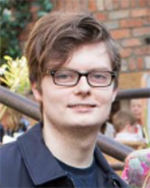
University/Organisation: UCL
Role: Postgraduate Student (LLM in International Commercial Law)
Presentation title: Future Crime: The Role of Pre-emptive Justice in Tackling Technology Based Sexual Harassment Crime
Theme related to the conference: Moving beyond policies
Conor Courtney is an LLM student at UCL. He holds a B.A. from Trinity College Dublin and an LLB from Dublin Business School. Currently, he is a researcher for the European Law Students’ Association: International Legal Research Group 2020, on Internet Censorship, and a Legal Researcher for the UCL Rare Dementia Legal Advice Clinic. Conor is a Certified Data Protection Officer and is the Senior Editor, Technology Law, Policy and Regulation, for SCL Student Bytes. He has recently been announced as a finalist for the 2020 Future Legal Mind Awards.
Three things to get out of the conference:
Learn about how the university climate specifically affects sexual misconduct.
Explore the role of allies in the movement against systematic sensual misconduct.
Discuss the concept of pre-empting sexual misconduct through lessons learned in the legal sphere.
Alice King (she/her)
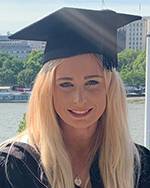
University/Organisation: Warwick Law School, University of Warwick
Role: PhD Candidate
Presentation title: Exploring student attitudes towards sexual violence at elite institutions 10.30am-11.30am
Theme related to the conference: Intersectional experiences and Not a moment, it’s a movement
I am a 2nd year PhD Candidate at Warwick Law School, University of Warwick. My research is concerned with understanding student attitudes towards sexual violence and common sexual behaviours at elite (Russell Group) institutions in the UK and situating these attitudes within broader discourses relating to power and gender. My work is informed by feminist and post-structural theories of power and gender.
Prior to starting my PhD at Warwick, I completed an LLM in Jurisprudence and Legal Theory at UCL and hold an LLB from Queen Mary, University of London. On a broader scale, I am interested in the relationship between gender and the law particularly in the context of sexual violence.
Three things to get out of the conference:
I am looking forward to hearing about the other work being done in the field and how collectively we might be able to use our work to advance sexual misconduct policies in the HE arena.
I am interested to hear about the challenges other researchers have faced working in this area and how they have sought to overcome them – with the hope I may learn how to better face challenges in the future.
I am hoping to receive some feedback and ways in which I could strengthen my own work from others working in the area.
Fiona Kinsella (she/her/hers)
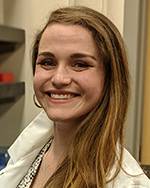
University/Organisation: University College London (UCL)
Role: MRes Translational Neuroscience student, UCL Queen Square Institute of Neurology
Presentation title: Intersectional experiences: Opportunities for change…?
Date: Wednesday June 17th, 2020 10:30-11:30 am.
Theme related to the conference: Intersectional Experiences
My name is Fiona Kinsella and I am currently a MRes Translational Neuroscience student at UCL’s IoN. Originally from Chicago, IL, I recently moved to London from Seattle, WA after graduating magna cum laude with my BSc in Behavioural Neuroscience and minor in Chemistry from Western Washington University. My passions include researching the neurogenetics of Huntington’s Disease, working with patient populations, trauma informed care, and forensic/neuropsychiatry.
Three things to get out of the conference:
Top three suggestions for UCL faculty/staff:
Familiarize yourself with the short-term and long-term psychological/behavioural expressions of SA trauma.
Offer your willingness to talk to students about their struggles in the course and what may be causing them; don’t make it seem like your time is only for talking about course work. Also, reach out to students that are noticeably exhibiting signs of the sequelae of SA (such as, panic attacks, uncontrollable irritation or anxiety, possible confusion and dissociation, etc.).
Understand that there is no timeline to heal from a history of SA. The incident(s) may have happened years ago or last week, the brain does not operate in this sequential way and either should you while working with students.
Wenqianglong Li (Ayden)
University/Organisation: University College London (UCL)
Role: PhD student
Presentation title: Intersectional experiences: opportunities for change..?
Date: Wednesday 17th June 2020, 10.30-11.30am
Theme related to the conference: Intersectional experiences
I am currently a PhD student in the Division of Psychiatry at UCL, conducting studies into antisocial personality disorder and other psychiatric disorders. Previously I was an MSc student in UCL Queen Square Institute of Neurology. During these 4 years at UCL, as both a student and PhD student ambassador, I have observed how UCL has devised strategies to inform staff and students about sexual misconduct, to prevent sexual misconduct from happening and to help all those seeking support. This includes support provided by UCL Student Wellbeing and UCL Student Psychological services.
Three things to get out of this conference:
Although students are advised who they can speak to about a range of personal problems, if they experience sexual assault, would it be better if students were directed to a dedicated, independent unit…? Rather than talking to academic supervisors or tutors, could or should students be able to access independent advice from a team with specialist knowledge and skills, a resource that could be sign-posted to all students during Induction at the very start of their university programme..?
What have we as an organisation and as individuals learned from research and from our own experience..? How can we encourage students who experience sexual misconduct to seek help..?
Whilst institutions have established mechanisms for dealing with sexual misconduct and ways to support students, what is the current guidance on how to prevent it happening in the first place..?
Caroline Selai (she/her)
University/Organisation: UCL & The National Hospital for Neurology and Neurosurgery (NHNN)
Role: Senior Lecturer in Clinical Neuroscience (UCL) and Honorary Health Psychologist (NHNN)
Presentation title: Intersectional experiences: opportunities for change..?
Date: Wednesday 17th June 2020, 10.30-11.30am
Theme related to the conference: Intersectional experiences
At UCL I have a number of roles including MSc Programme Co-Director, Tutor, Module Lead and I am Co-director of the UCL Cultural Consultation Service (www.ucl.ac.uk/ccs). A large component of all these roles is student support and well-being. Within these university roles and in my clinical work, many have disclosed an experience of childhood and/or adult sexual abuse and the sequelae, including flashbacks, nightmares and other symptoms of Post-Traumatic Stress Disorder (PTSD), Depression, Anxiety, OCD, Substance Abuse Disorder and Somatic Symptom Disorder.
I am aware that many students are still, today, suffering in silence. It is to these students, who do not have a voice that I would like to dedicate this conference presentation.
Three things to get out of the conference:
Given that the first step to overcoming trauma is for the person to feel ‘safe’ how can we make our universities safe (supportive, nurturing) spaces..? Should staff such as Course Directors and Tutors be given further training..?
Students with intersectional experiences i.e. at the interface of race, culture, gender, sexual orientation find it particularly challenging to seek help. How can we reach out to marginalised groups..?
Where a student has a Statement of Reasonable Adjustments (SoRA), how can we ensure the SoRA is (a) comprehensive and (b) implemented..?
Michael Moutoussis (he/his)
University/Organisation: UCL & UCLH
Role: Clinical lecturer in Neuroscience and honorary consultant medical psychotherapist
Presentation title: Intersectional experiences: opportunities for change..?
Date: Wednesday 17th June 2020, 10.30-11.30am
Theme related to the conference: Intersectional experiences
I have worked for many years I clinical psychiatry, and now work most of the time in brain/mind research. I am passionate about the clinical relevance of basic research. My main clinical interests are 'functional' somatic symptoms, psychotic symptoms and so-called personality disorder. Patients in with almost any psychiatric problem, but certainly in these three groups, have rates of sexual harassment and abuse much greater than the general population. People with psychotic symptoms and so-called personality disorder often shared their stories with me, and inspired me to study the thinking behind how people see each other, how they represent each other's minds, how they gather information to build their beliefs. Our experiences form a key element of what how believe about the threats we face, especially from other people. I work on several aspects of the relation between basic information processing in the brain and high-level psychiatric symptoms.
Three things to get out of the conference:
To hear people’s stories and especially how they feel that SA may have affected their everyday relationships with gendered others ‘here and now’.
To ask how people who have experienced SA might help set research agendas, what they may really want mind/brain scientists to find out
I am curious about whether economic factors (poverty, employment, housing etc.) play a role in whether people have suffered SA and whether it’s difficult for them to get help for it, for example through IAPT.
Rhian Male
University/Organisation: UCL
Role: Student – MSc Clinical Neuroscience
Presentation title: Intersectional experiences: opportunities for change..?
Date: Wednesday 17th June 2020, 10.30-11.30am
Theme related to the conference: Intersectional experiences
I am currently an MSc Clinical Neuroscience student at UCL.
I feel very passionately that anyone who has survived (or is currently surviving) an abusive relationship involving rape, feels able to share their experiences with someone they trust, that the ‘listener’ is able to understand on some level what this may be like so that the survivor does not feel judged and is thus more likely to speak openly, that the consequences (such as mental health difficulties) are more widely understood and acknowledged, and that survivors have access to appropriate support which enables them to move forwards (with studying, for example).
Three things I would like to get out of this conference:
To enable increased understanding of the experience of being in an abusive relationship, so that if someone is currently experiencing/has experienced this, friends, family, or staff at Universities (e.g. tutor, or other trusted member) may have some insight into this type of situation. Such experiences can otherwise be quite difficult to comprehend ‘from the outside’. This may help individuals feel able to approach others for help, particularly given that fear of judgement and feelings of shame can prevent people from opening up about what is happening/has happened. Important themes include, for example, how isolating, frightening and confusing an experience like this can be, and how the body and mind’s natural response to trauma can make it difficult to get away from the situation.
To discuss symptoms of Post-Traumatic-Stress-Disorder (PTSD) and other short- and longer-term consequences of rape/abuse, and particularly how these may impact on studying at University: for example, difficulties concentrating, flashbacks (which could be triggered by particular people, smells, situations etc), hypervigilance, and dissociation.
To make suggestions of ways in which UCL and Universities as a whole can ensure the best support is available for survivors during their studies, such as: understanding the importance of implementing all aspects of the Summary of Reasonable Adjustments (SoRA) (if a student has one), members of staff being approachable, and scheduling breaks within the daily lecture timetable (to allow, for example, some time to use ‘grounding techniques’ or other coping strategies which may be needed to manage PTSD symptoms throughout the day).
Dr Anna Bull (She/her)

University/Organisation: University of Portsmouth
Role: Senior Lecturer in sociology
Presentation title and time: Making complaints a civil process: New sector guidance on staff-sexual misconduct procedures, 11-30am-12.30pm
Theme related to the conference: Improving equalities within the complaints process
Anna Bull is co-director of The 1752 Group, a research and lobby organisation addressing staff sexual misconduct in higher education, and Senior Lecturer in sociology at the University of Portsmouth. She was lead author on the report Silencing Students examining students' experiences of higher education complaints processes and co-author on The 1752 Group and McAllister Olivarius' Sector Guidance to Address Staff Sexual Misconduct.
Three things to get out of the conference:
Hearing about relevant work others are doing in this area
Sharing our work with others
Getting ideas for future work
Emily Cookson-Williams (They/Them)

University/Organisation: University of Roehampton
Role: Student Wellbeing Officer
Presentation title and time: Reversing the Bystander Effective: Activating Students to Tackle Sexual Violence on Campus (30 mins)
Theme related to the conference: Not a moment, it’s a movement: Creating sustainable change and building networks of allies and bystanders.
As Student Wellbeing Officer, Emily’s provides in depth, 1-2-1 support for students impacted by sexual violence. This can range from emotional support to practical help in regards to accommodation arrangements, managing academics and supporting students who chose to report to the university or police. Through this work, Emily has played a part in the development and improvement of institutional polices and processes, including the Student Sexual Violence Policy.
In 2017, the University of Roehampton developed The Bystander Intervention Project in response to the UUK’s Harassment Taskforce’s report ‘Changing the Culture’. The Bystander Intervention Project has aimed to encourage students actively engage in tackling sexual violence by employing students to work at the night time Students’ Union events to reinforce the University’s zero tolerance stance on sexual harassment and assault.
After developing the initial training for the project, Emily has taken on the coordination of the Bystander Intervention Project since 2018, working with the Students’ Union and the University Support Services to embed the team into university life and culture. With the Bystander Intervention Project at Roehampton taking a different approach to other institutions, there has been lots of interest on how the project has worked and the impact, leading to Emily presenting about the project at the 2019 AMOSSHE Annual Conference in Birmingham.
Three things to get out of the conference:
Explore and share best practice with other institutions and gain insight into some of the challenges other HEI’s have experienced in tackling sexual violence and how these may have been overcome.
Georgina Calvert-Lee (she/her)

University/Organisation: McAllister Olivarius, law firm
Role: Head of UK Practice
Presentation title and time: Making complaints a civil process: New sector guidance on staff-sexual misconduct procedures
Wednesday 17 June, 11-30am-12.30pm
Theme related to the conference: Improving equalities within the complaints process
Georgina Calvert-Lee heads the UK employment and equality team of law firm McAllister Olivarius, with an emphasis on discrimination, harassment and sexual violence law in employment, education, services and online.
She has developed a particular focus on inequalities within UK higher education, and has represented students, academics and Vice Chancellors in claims against their institutions, including those which argue that the complaints process used was discriminatory. With The 1752 Group, she recently co-authored Sector Guidance to Address Staff Sexual Misconduct in UK Higher Education.
Three things to get out of the conference:
Raise awareness of the 1752 Group McAllister Olivarius New sector guidance on staff-sexual misconduct procedures.
Discussing application of key principles underlying the guidance to other forms of discrimination and harassment (e.g. race, sexual orientation, etc) or complaint (e.g. student on student).
Generating feedback on the guidance from interested parties, with a goal towards encouraging adoption.
Nina Higson-Sweeney (she/her)
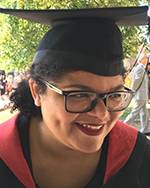
University/Organisation: University of the West of England
Role: Postgraduate student
Presentation title and time: Understanding sexual violence at University: an evidence-based response – June 18th at 9.30am
Theme related to the conference:
Nina is a MSc Health Psychology student studying at the University of the West of England. She has previously been involved in research about help-seeking for OCD, CFS/ME, and sleep/fatigue. For her Masters dissertation, she is exploring student experiences of sexual violence at university. In September she will be starting a PhD at the University of Bath.
Three things to get out of the conference:
Networking Learning more about the field and contemporary research being done Approaches taken by institutions globally.
Dr Tiffany Page (She/her)

University/Organisation: UCL Institute of Education, Department of Education, Practice & Society
Role: Lecturer in sociology of media & higher education
Presentation title and time: Making complaints a civil process: New sector guidance on staff-sexual misconduct procedures
Wednesday 17 June, 11-30am-12.30pm
Theme related to the conference: Improving equalities within the complaints process
Tiffany Page is a lecturer in sociology in the UCL Institute of Education and a co-director of The 1752 Group, a research and lobby organisation addressing staff sexual misconduct in higher education. Tiffany is co-author on The 1752 Group and McAllister Olivarius' Sector Guidance to Address Staff Sexual Misconduct, and her research focus involves examining relationships between vulnerability and how individuals and communities experience violence.
Three things to get out of the conference:
Meeting people working in related areas across higher education and connected sectors
Learning about new practices and scholarship
Getting a sense of where the future focus lies for this work
 Close
Close

